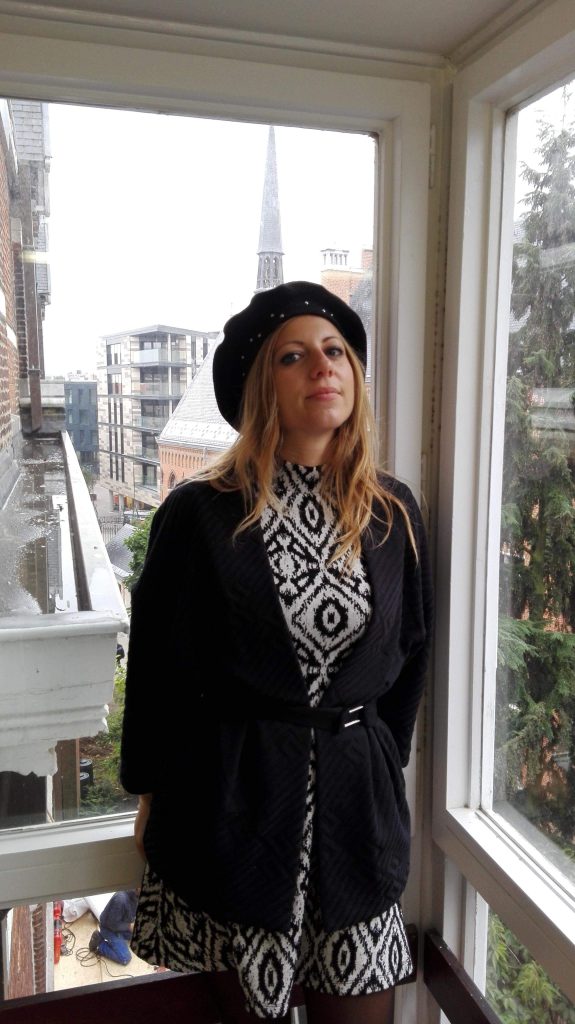My research concerns how we develop the capacity to understand others and ourselves. I began with studying the processes governing the development of behavior at Sapienza University in Rome, where I received both the Bachelor and Master Degree in Philosophy of Biology.
I did my Ph.D. at the Department of Neuroscience in Parma with Pier F. Ferrari, where I analyzed what happens to our brain during social understanding, while focusing on both our biology and social experience. I focused my attention on the functioning of the Mirror Neuron System (MNS), a network composed of neurons tuning social inputs to behavioral responses, and vice versa. I investigated the MNS within evo-devo, the comparative analysis of the processes underling development in order to understand the evolution of development, and recognized the crucial contribution of epigenetics, playing a mediating role in how our genes and experience make up our brain and social behavior.
I am interested in producing conceptual formulations of social behavior that can allow to investigate how genes and socio-cultural experiences interact in the development and evolution of the mind.
I have an on-going research collaboration with an interdisciplinary team led by Atsushi Iriki at the RIKEN Brain Science Institute in Tokyo. The scope of this collaboration is to conceptualize human evolution in relation to the ability to use tools and design technological intervention. This project also involves a focus on the importance of studying the brain and behavior of non-human primates, by searching for new ways to increase their welfare.
During the first two years of my postdoc, I worked at the German Primate Centre, and the Lichtenberg Kolleg, Institute of Advanced Studies in Göttingen (Germany), where I joined the labs of Julia Fisher. I learned a lot on how various species of monkeys communicate, and how their manual, facial and vocal gestures can be automatic and/or intentionally controlled. I thus started to think that one of the keys of our success is that we evolved incredible social attention and recognition capacities, and sophisticated technological control that are crucial for the emergence of our cultural worlds.
From October 2017 to July 2018, I have been Lecturer at the Berlin School of Mind and Brain of the Humboldt University zu Berlin, and taught the following courses: Mirror Neurons and the Evolution of the Social Brain and the Neurobiology of Consciousness: an evolutionary perspective. In my teaching, I address longstanding philosophical questions (on mind-body interaction and the problem of other minds) by analysing the nature and origin of human cognition through a developmental and evolutionary lens.
Since May 2018, I am a philosopher in residence at the Max Planck Institute (MPI) for the Science of Human History in Jena, at the Department of Linguistic and Cultural Evolution led by Russell Gray, whereas between January and May 2019, I have been a Visiting Fellow at the Centre for Philosophy of Science of the Pittsburgh University with Edouard Machery.
During this year, I have started to inquire Subjective agency. I am interested in what cognitive processes make us conscious while we doing what we do, and how we can inquire this. I am exploring the mechanisms of causality and intentionality governing the sense of being the author of our actions and how causal and intentional states are connected with time perception. I am also interested in the enabling conditions of subjectivity, and I am individuating them in our immune system. This will pave the way to an analysis of how the genetic evolution of our immune system affected our consciousness and cognition.
I am appointed Research and Teaching Associate at the Department of Philosophy of Mississippi State University (USA) from August 2020, where I will teach a course on the role of Epigenetics in Cognitive Development and Evolution. I will be exploring the possibility to define common neural networks across different individuals and (primate) species connected to causal social learning, as an example of epigenetic homology, involving common processes of brain maturation and learning that produce stable phenotypic results across individuals and species.
I have an open collaboration with the Ruhr University in Bochum, and specifically with the Department of Philosophy and the Center for Mind, Brain and Cognitive Evolution directed by Prof Albert Newen, where I will spend at least two months in 2020.
I have received grant funding for the NIH during my PhD, a nomination by the Jacob Foundation in 2018 as Young Scholar, and a best postdoc Awards at the Protolang Conference 2019 for my presentation on the Grammar of Tool-use.
You can find more information on my publications in the following websites: https://www.researchgate.net/profile/Antonella_Tramacere https://shh-mpg.academia.edu/AntonellaTramacere
